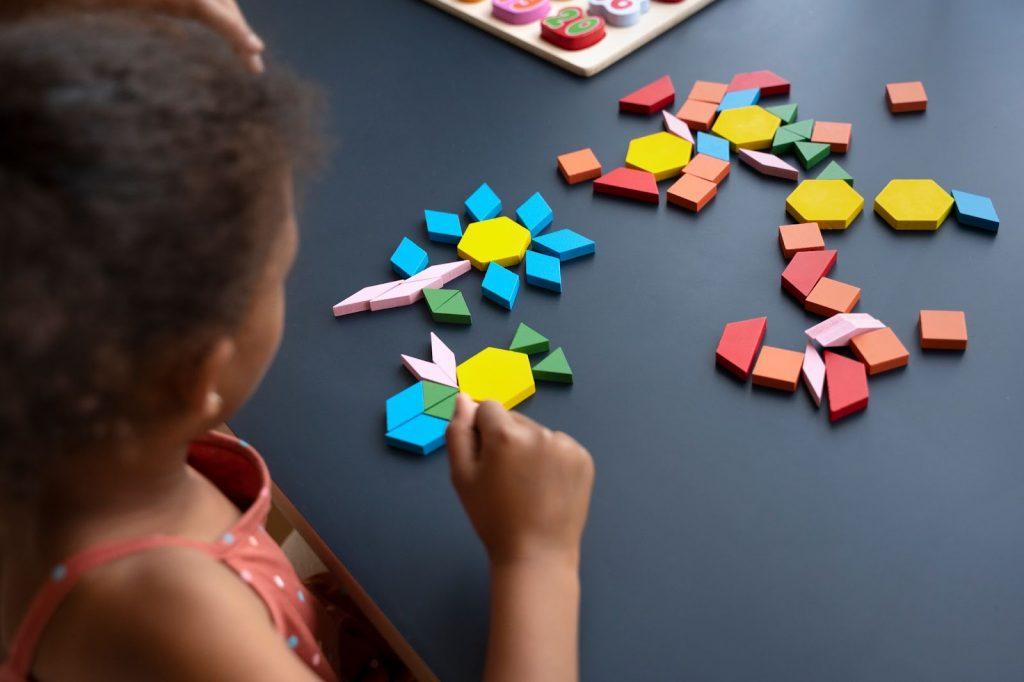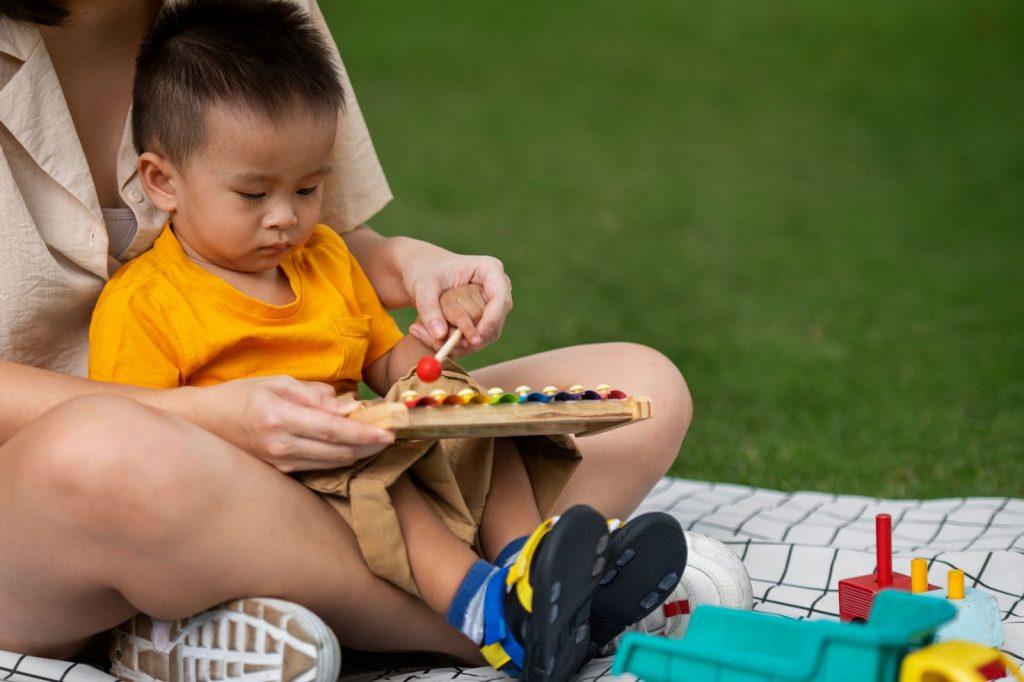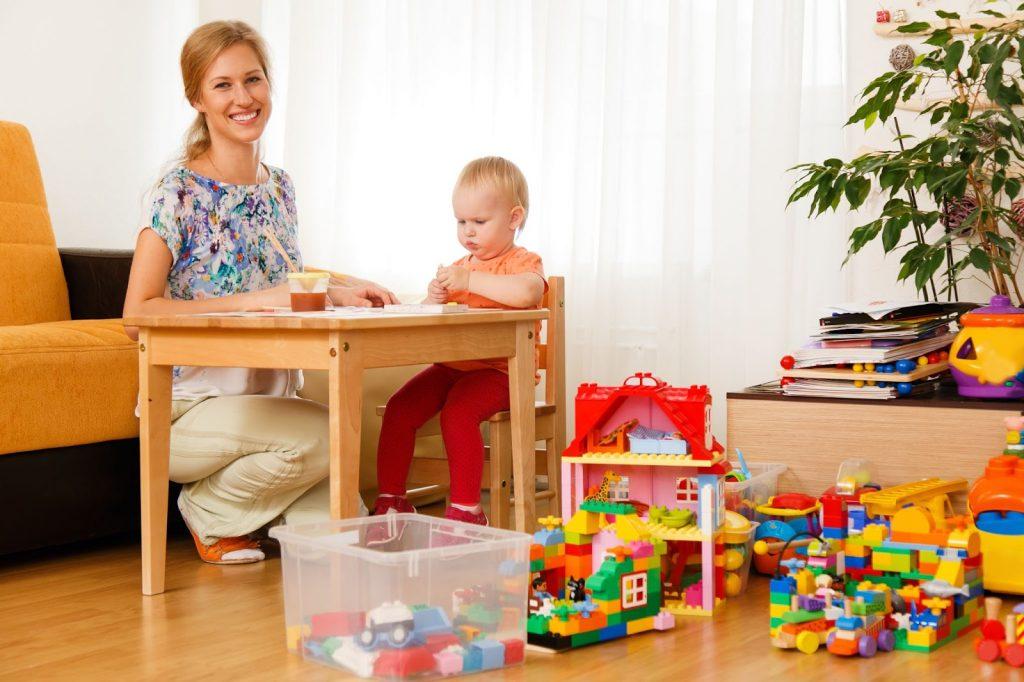Cognitive Activities for Infants – Nurturing Cognitive Development

Are you looking for effective cognitive development activities for infants? Then, you’re in the right place here.
Cognitive development in infants is an essential aspect of their overall growth and lays the foundation for future learning and intellectual abilities. It is during the first year of life that their brains undergo rapid development, forming neural connections and acquiring fundamental cognitive skills. As a parent or caregiver, you have a unique opportunity to support and nurture their cognitive abilities during this critical period.
Infants are naturally curious and eager to explore their environment. By providing them with engaging and stimulating activities, you can enhance their cognitive development and help them reach important milestones. In this article, we will delve into a variety of cognitive activities for infants 6-12 months. These cognitive development activities for infants are not only enjoyable for your little one but also play a vital role in promoting their problem-solving skills, memory retention, attention span, and language development.
It’s important to remember that every child develops at their own pace, so be patient and allow them to progress at their own speed. The activities provided here are meant to serve as a guide and can be adapted based on your infant’s individual abilities and interests.
By incorporating these cognitive development activities for infants in your daily routine, you can create a nurturing environment that stimulates your infant’s cognitive growth and encourages their natural curiosity. Let’s explore the exciting world of cognitive development and unlock your infant’s limitless potential.
Explore Cognitive Development Activities for Infants
Here are some cognitive activities for infants:
1. Sensory Play
Sensory play engages infants’ senses, helping them develop cognitive skills. It creates opportunities for them to explore the world around them and make sense of various stimuli. Here are some sensory activities to enhance cognitive development:
a) Texture Exploration: Create a sensory bin filled with materials of various textures such as sand, fabric scraps, or feathers. Encourage your infant to explore and touch different surfaces, describing each sensation. This activity promotes sensory integration and tactile discrimination.
b) Treasure Baskets: Fill a basket with safe objects of different shapes, sizes, colors, and textures. Allow your infant to investigate and manipulate the objects, promoting sensory exploration and object recognition. This activity stimulates their senses while fostering cognitive skills such as attention, curiosity, and object permanence.
2. Cause & Effect
Understanding cause and effect is an important aspect of cognitive development. Infants begin to grasp the concept that their actions have specific outcomes. Here are activities that introduce this concept to infants:
a) Ball Drop: Provide your infant with soft, colorful balls and demonstrate dropping them into a container. Encourage your little ones to repeat the action, helping them understand cause and effect. They will lean that dropping the ball results in a sound or movement, fostering their understanding of cause-and-effect relationships.
b) Musical Instruments: Offer your infant simple musical instruments like rattles or drums. Show them how to create different sounds by shaking or tapping, teaching them that their actions produce specific outcomes. This activity enhances their motor skills, auditory perception, and cognitive understanding of cause and effect.
3. Object Permanence
Object permanence is the understanding that objects continue to exist even when they are out of sight. Promote this cognitive skill with the following learning activities for infants:
a) Peek-a-Boo: Engage in the classic game of peek-a-boo with your infant, covering your face with a cloth or your hands. This activity helps them comprehend that objects and people can reappear after being temporarily hidden. It encourages their attention, memory, and understanding of object permanence.
b) Nesting Cups: Provide a set of nesting cups for your little one to stack and knock over. This activity strengthens their grasp, hand-eye coordination, and object permanence as they discover that the cups are still present even when hidden inside each other. It also enhances their problem-solving skills as they figure out how to nest the cups back together.
4. Language Development
Encouraging language development fosters cognitive growth. Language skills are essential for communication, memory, and understanding concepts. Here are activities to enhance your infant’s language skills:
a) Read Aloud: Choose age-appropriate board books and read aloud to your infant. Point to pictures, describe what you see, and ask simple questions. This activity supports language acquisition and comprehension. Your baby will begin associating words with objects, developing their vocabulary and understanding of language.
b) Baby Sign Language: Introduce basic sign language signs, such as “milk,” “more,” or “eat.” Pair the signs with spoken words, helping your infant associate gestures with meanings and facilitating early communication. Baby sign language promotes cognitive development by enhancing communication skills, memory, and understanding of symbolic representation.
5. Problem-Solving
Promote problem-solving abilities through interactive activities that challenge your infant’s thinking skills:
a) Stacking Blocks: Provide colorful blocks and encourage your infant to stack them. As they attempt to balance and build, they develop problem-solving strategies and fine motor skills. This activity fosters spatial awareness, hand-eye coordination, and cognitive flexibility.
b) Object Retrieval: Place a toy or object just out of your infant’s reach and encourage them to figure out how to retrieve it. This activity stimulates problem-solving skills and encourages exploration. They may use trial and error, problem-solving strategies, and physical coordination to reach the desired object.
Feel Free to Use These Cognitive Development Activities for Infants
Engaging infants in cognitive development activities is an exciting way to support their growing abilities. By incorporating sensory play, cause and effect, object permanence, language development, and problem-solving activities into their daily routines, you can help nurture their cognitive skills. Remember, every interaction and activity is an opportunity for your infant to learn and explore the world around them.
Enjoy these precious moments together as you embark on this incredible journey of cognitive development. Implementing these cognitive activities for infants can contribute significantly to their overall growth and development. Remember that each child develops at their own pace, so be patient and provide a nurturing environment that encourages exploration and discovery. Start incorporating these learning activities for infants into your daily routines and witness the amazing progress your infant makes on their cognitive journey.
Images from Freepik





